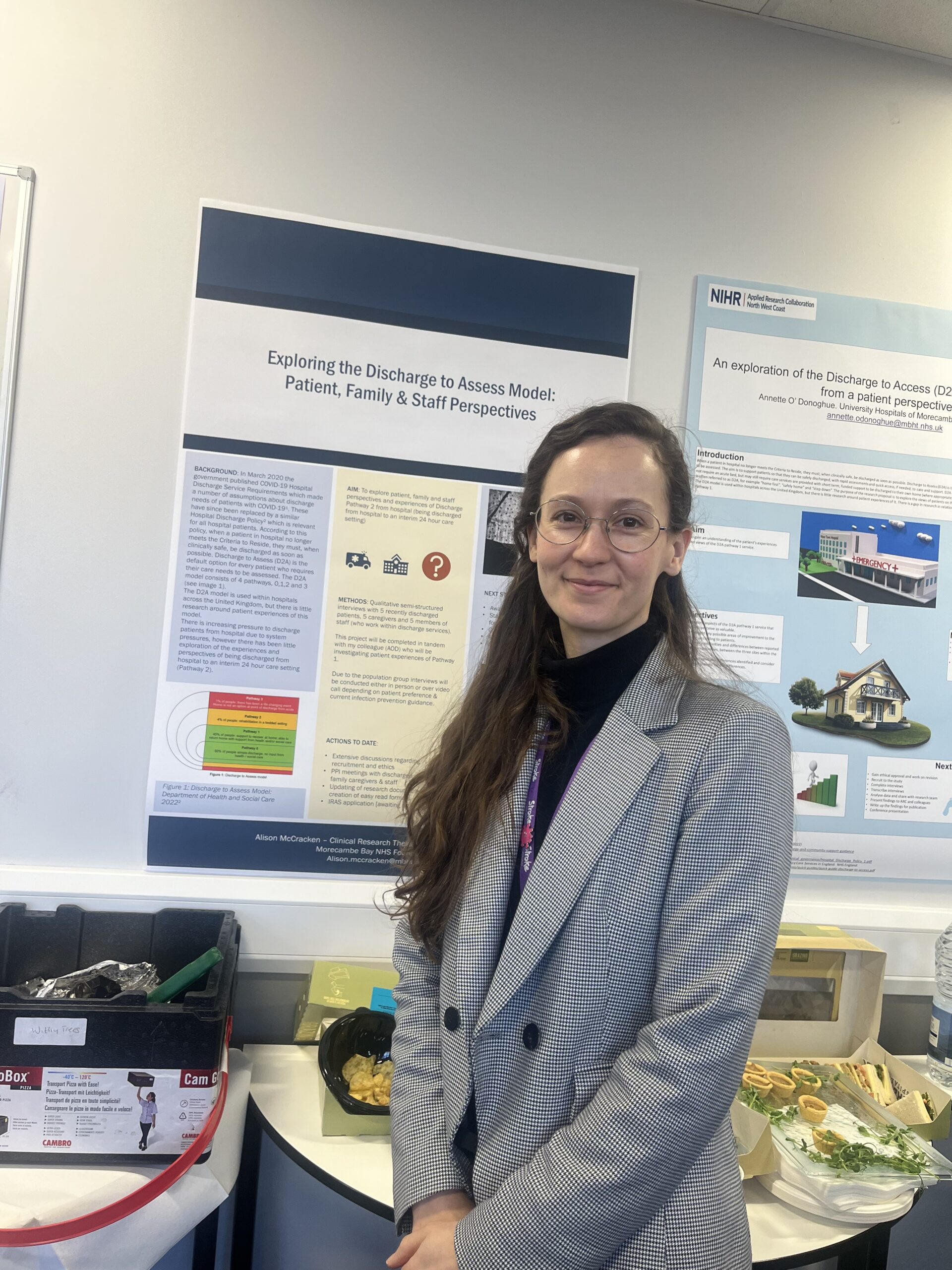Exploring the “Discharge to Assess” (D2A) model – pathway 2: Patient, carer, and staff perspectives
Alison McCracken - Occupational Therapist, University Hospitals of Morecambe Bay NHS Foundation Trust

Research Internship with the Health and Care across the Lifecourse (HaCaL) theme
Background: In March 2020, the Government published COVID-19 Hospital Discharge Service Requirements which made a number of assumptions about discharge needs of patients with COVID-19. These have since been replaced by a similar Hospital Discharge Policy which is relevant for all hospital patients. According to this policy, when a patient arrives in hospital no longer meets the “Criteria to Reside”, they must, when clinically safe, be discharged as soon as possible. “Discharge to Assess” (D2A) is the default option for every patient who requires their care needs to be assessed. The D2A model consists of 4 pathways and used within hospitals across the UK. There is increasing pressure to discharge from hospital due to system pressures but there has been little exploration of the experiences and perspectives of being discharged from hospital to an interim 24-hour care setting.
Research aims and objectives: To explore patient, caregiver, and staff perspectives and experiences of being discharged from hospital to an interim 24-hour care setting (pathway 2 in the D2A model).
Methods: Qualitative semi-structured interviews with 5 recently discharged patients, 5 caregivers, and 5 members of staff who work within discharge services. Interviews will be conducted in person or by video call depending on participant preference and current infection prevention guidance.
Patient and public involvement: Meetings with discharged patients, caregivers, and staff.
Links:
• ARC NWC Internship Showcase Poster
For more information, contact alison.mccracken@mbht.nhs.uk